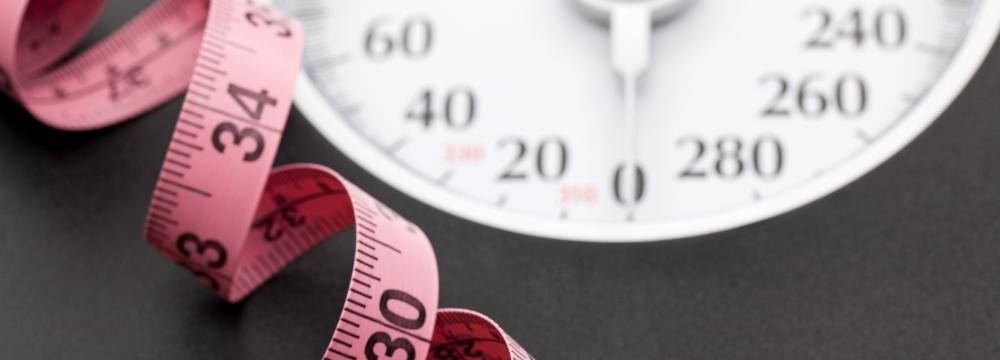Blog Archives
Sleep Series Part 1: How Poor Sleep Can Cause Excess Weight

When you think about losing weight, you probably don’t think about sleeping, and it’s not your fault. Fitness and health communities tend to cover topics such as weightlifting, cardio, what you’re eating, what body type you want, and more, but they hardly ever respect just how important sleep is to your health and weight in the long run. So, the next time you think about skipping your Zzz, consider how your health could be taking the L. See why below.
More Information on Ghrelin, The Hunger Hormone

If you’re reading this article, you have likely spent a good amount of time researching bariatric surgery, and we commend you for that. Bariatric surgery is not a one-and-done solution to excess weight and obesity. It requires a lot of careful thought, introspection, and research into the best procedure for you. Having done at least some of that, you will have undoubtedly come across a hormone known as ghrelin. This is one of the few hormones that promote hunger rather than satiety, which is leptin‘s job. Ghrelin sprang to the forefront of bariatric surgery in the late 1990s because of the experiences we, as surgeons, saw in our patients after gastric sleeves. Amazingly, gastric sleeve patients were losing a great deal of excess body weight. However, it seemed disproportionate to the simplicity of the procedure. It turned out that the restriction-only mechanism of the gastric sleeve was not the only mechanism that worked to help patients. Soon, we realized that by removing the fundus of the stomach, the outer, curved end, and creating the sleeved shape pouch, we were also removing the primary production center of the hunger hormone in our bodies. It stands to reason that by doing this, patients lost even more weight because they had a hormonal mechanism of weight loss in addition to physical restriction.
Walking Versus Running. Which Is Better After Bariatric Surgery?

It’s hard to overstate the importance of exercise after your bariatric procedure. The surgery forces you to eat less and be more mindful of the calories and macronutrients you put in your body; however, surgery does not force you to exercise. That said, exercise represents a vital component of any weight loss program, bariatric surgery or not. Arguably, exercise is the primary driver of weight loss maintenance over the longer term.
That leads us to a common question – is walking or running better after bariatric surgery?
There are benefits and drawbacks to walking and running but let’s approach this question in more general terms.
Is It a Hemorrhoid or Anal Fissure?
Updated for 2023!
We all experience sore or itchy rear ends at some point in our lives, often resolving with proper self-care. Some of us may even experience painful bowel movements and bright red streaks of blood in the toilet. This is a common reason to visit a colorectal surgeon like Dr. Alex Crean at MASJax. Fortunately, most cases of bright red blood during a bowel movement and resultant discomfort or pain are caused by a benign condition known as hemorrhoids or piles. However, this condition can be easily confused with anal fissures – small cuts or tears in the lining of the anus. How can you tell the difference? With similar symptoms, it can be difficult for patients to figure out what’s happening, and blood presence is downright frightening. Don’t even get us started on Dr. Google; that can easily convince a worried patient. An exam by a trained colorectal physician will help you to get a precise diagnosis of your condition and find the best treatment for you sooner rather than later.
Forever Chemicals and Their Effect on Our Weight

As we become more conscious of our environments and what we put into our bodies, the concept of forever chemicals has come into full view. Forever chemicals are just as they sound: they accumulate in our bodies throughout our lives and are not excreted or expelled through our normal bodily functions. These chemicals can range from relatively benign to carcinogenic and should not be in our bodies in the first place.
Before we learn how to avoid these chemicals, it’s worth noting that preventing exposure to some chemicals is either impractical or downright impossible. The packaging that even the healthiest foods come in is often laced with these chemicals, and even the most vigilant of us cannot avoid them entirely. However, this article aims to understand more about what chemicals are in our environments, where we find them daily, and practical tips on avoiding them.
Is It Better to Skip Meals or Eat Fast Food After Bariatric Surgery?
 The unfortunate reality of modern-day society is that we have less time than ever. Whether it is self-imposed obligations or those expected of us from others, we seemingly have less and less time to devote to ourselves and to our health. The result is an increase in stress that has caused not only the mental health issues that we see every day but also physical ailments, not least of which are excess weight and obesity.
The unfortunate reality of modern-day society is that we have less time than ever. Whether it is self-imposed obligations or those expected of us from others, we seemingly have less and less time to devote to ourselves and to our health. The result is an increase in stress that has caused not only the mental health issues that we see every day but also physical ailments, not least of which are excess weight and obesity.
Often, the stress revolves around work and the expectation that we work longer and harder. The drive toward productivity seems never to end, and the result is that fewer Americans take their deserved time off, instead opting to be more productive and a “better employee.” For many, this means skipping meals to allow themselves a little extra sleep, working through their lunch break, or even coming home too late to have a proper dinner.
This often leads to a reliance on fast food to get through the day. But is this truly helpful, or does simply skipping a meal make more sense for someone trying to lose weight or even a bariatric patient heading toward their weight loss goals?
Is Hernia Surgery Painful?

Hernias, especially the inguinal kind – those that occur in the groin – are very common. It is estimated that approximately 25% of all men will develop an inguinal hernia over their lifetimes. However, only a fraction of these hernias will ever be found. This is because not all hernias present with symptoms, and even if an asymptomatic hernia is discovered incidentally, it does not necessarily require treatment.
Many patients who have the option of alternately undergoing a hernia procedure or waiting to have surgery are concerned about the pain associated with the process. To understand more, we must discuss a few concepts, including why patients would experience pain during or after hernia surgery and what patients should consider when proceeding with hernia surgery.
How You Can Use Zone 2 Training to Lose Weight After Surgery

We are constantly bombarded with diet and exercise programs that promise fast weight loss results. But what if the most effective exercise programs are the ones we’ve known for years? What if many high-performance athletes have always used these simple exercises to prepare for the highest level of competition? What if these exercises did not require intense training all the time? It sounds like one of those too-good-to-be-true commercials, doesn’t it? But the truth is that zone 2 training is precisely one of these exercises and should be a part of every bariatric patient’s return to exercise.
In this article, we will discuss zone 2 training and how it can make a difference in your postop exercise program.
New Bariatric Surgery Guidelines From ASMBS and IFSO

You have likely done plenty of research on bariatric surgery and know that the Body Mass Index or BMI is the primary tool for measuring whether a patient qualifies for bariatric surgery. According to 1991 federal guidelines, patients with a BMI of 35 or more with one or more obesity-related comorbidities may qualify for bariatric surgery. Patients with a BMI of 40 or over may be eligible regardless of their obesity-related conditions. That said, the definition of obesity is arbitrary because the BMI does not consider many of the traits and qualities that make us all different. For example, the degree to which obesity or excess weight may be problematic varies based on race, body type, musculature, and gender; even where you keep and accumulate your fat can make a significant difference in the risk of follow-on diseases.
The Limitations of BMI and the Simple Measurement You Should Do at Home

Back in the 1950s, an actuarial calculation known as the Metropolitan Life (MetLife) Height-Weight Table gave us a straightforward range of ideal body weights. While the underlying data was criticized as inconsistent, it considered age, body frame size, and gender. The tables were revised in the 1980s. However, the Body Mass Index, or BMI soon supplanted this widely used calculation. Interestingly, the BMI is an even older height/weight comparison that provides an easy-to-understand double-digit number showing where one lands on the scale between underweight and morbidly obese. When the underlying formula for BMI was created in the late 1800s, it was not meant to be a measure of obesity but has been adapted and adopted as such.
Today, governments, medical practices, and individuals use this calculation as the primary criterion to determine a person’s eligibility for bariatric surgery. Insurance companies even use the BMI to assess the coverage of weight loss procedures, medications, and programs. As you probably know, a BMI of 30 or more is considered obese, while a BMI of 40 or more is morbidly obese.
